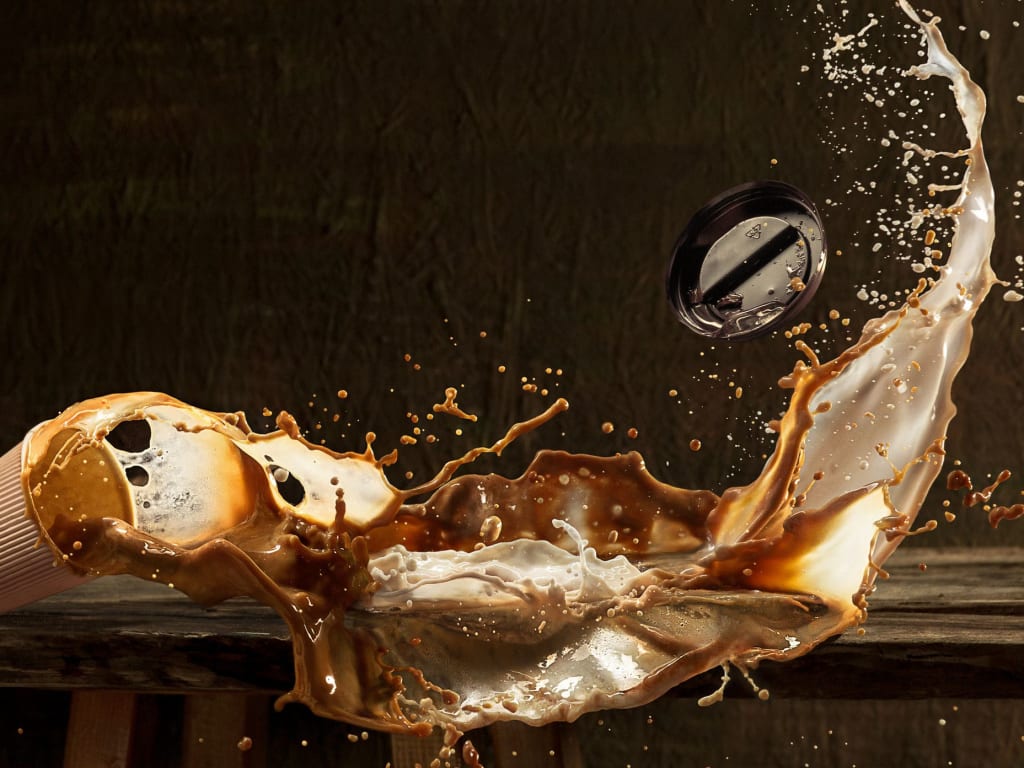Is Soda Considered a Fluid?
This is for you!

You know you should restrict your intake of carbonated beverages, but does a single pop count toward your hydration goals? Continue reading to find out.
For a long time, the news concerning soda hasn't been good. According to the Harvard T.H. Chan School of Public Health, sugar-sweetened beverages, such as soda, have been associated to an increased risk of obesity, type 2 diabetes, heart disease, and early death. In fact, Harvard classifies soda as one of the most harmful drinks to human health, advising consumers to consume as little as possible.
It's thus reassuring to read that Americans are finally drinking less sugary soda. According to research published in September 2020 in the Journal of the Academy of Nutrition and Dietetics, the number of adults considered "heavy consumers" of soda — defined as those who consume more than 500 calories of soda per day — fell by 4% between 2003 and 2016, while the percentage among children fell by twice as much.
According to the most recent data from the Centers for Disease Control and Prevention, nearly half of all Americans still consume at least one sugar-sweetened beverage per day (CDC). This translates to an average of 145 calories per day from these beverages, the majority of which comes from sugar. More consumers are switching to diet Coke, possibly because they believe it is a healthier option: According to the University of Texas at Austin, 59 percent of Americans drink diet soft drinks on a regular basis, despite the findings of multiple studies linking frequent diet soda intake to increased body weight and blood sugar levels.While no proof of causation has been proved, it is at the very least a reason to reconsider any soda consumption, diet or normal.
Still, because these drinks are liquids, it's natural to question if, like other beverages, a soft drink on occasion can help you stay hydrated. You've probably heard that hydration is important for your body's wellness. According to the Mayo Clinic, good fluid balance helps control body temperature, keeps joints operating properly, and aids in the elimination of waste materials, among other things. Indeed, previous study has shown that even minor dehydration, defined as a loss of 1 to 2 percent of bodily water, might impair cognitive performance.
Individual hydration requirements differ depending on gender, exercise level, and even environment. There is no recommended dietary allowance (RDA) for fluids, however the National Academies of Sciences, Engineering, and Medicine suggests that women consume about 2.7 liters (L) of fluid per day and men consume about 3.7 L. About 20% of that comes from meals, therefore women should drink about 2.2 L (9 eight-ounce cups) of fluids each day, while males should drink roughly 3.0 L (13 eight-ounce cups).
Water is obviously the healthiest source, but do sugar-sweetened beverages like soda, and if so, how much, count toward your daily quota? Here's what the most recent research says.
Water vs. Soda: How Do They Compare?
Water is considerably better for you nutritionally than any form of drink on the market. According to USDA data, a normal cola is roughly 89 percent water, which implies that almost 11 of the 12 ounces (oz) in a can of soda can be counted against your daily fluid requirement. However, the rest of what's in that can should make you think again. According to the USDA, a 12-ounce can of regular soda contains the equivalent of nearly nine teaspoons of sugar.
While diet soda, like water, is theoretically a calorie-free beverage, it does not provide the same health benefits. Diet soda consumers, in fact, ate more unhealthy meals throughout the day, according to previous research. In addition, according to a research published in the February 2019 edition of Stroke, postmenopausal women who drank more than two diet sodas per day had a 23 percent higher risk of stroke and a 29 percent higher risk of heart disease than women who drank diet soda rarely or never.
It's also worth noting that certain sodas include caffeine, which has been linked to a modest diuretic impact anecdotally. In other words, it may cause you to urinate more frequently, depleting your fluid reserves. However, because the caffeine concentration of most sodas is low (even Mountain Dew, a brand noted for its high caffeine content, contains only 36 mg of caffeine per cup, compared to 96 mg in the same quantity of coffee, according to the Mayo Clinic), the diuretic impact, if any, is small.The diuretic effects are described as temporary (not long-lasting) by the National Academies of Sciences, Engineering, and Medicine, who also point out that caffeinated beverages can be counted toward hydration needs in the same way as noncaffeinated beverages.
Soda Nutritional Facts
Regular soda has a lot of calories, almost all of which come from added sugar, which is mainly high fructose corn syrup. According to the USDA, a 12 oz can of cola contains 155 calories, with sugar accounting for around 147 of those calories. This equates to nearly nine teaspoons of sugar in each can. While "healthier" and "reduced sugar" sodas have started to appear on the market, many still include sugar (or artificial sweetener) and water, and aren't much better in terms of nutrition.
Diet soda is theoretically calorie-free, but it doesn't make it a particularly healthy option. Artificial sweeteners in diet soda have been related to increasing appetites for unhealthy meals, as previously indicated. Other studies have found a correlation between increasing diet soda consumption and increased waist circumference.
What About Soda Makes It Hydrating?
Because soda is mostly made up of carbonated water, it's understandable that the beverage has some hydrating properties, even if the rest of the contents are less than optimal. While soda shouldn't be your go-to for fulfilling your fluid needs, if you do choose to indulge, it might legally count toward your daily hydration goal.
Soda vs. Seltzer: Which Is More Hydrating?
In this case, Seltzer is the best option! While it's just slightly more hydrating than soda, it's free of added sugar and artificial sweeteners, as well as being naturally caffeine-free. If you're trying to break or cut back on your soda habit, seltzer can be a good substitute because it meets the desire for something cold and effervescent. Plus, there are a variety of flavor alternatives on the market, and if none of them appeal to you, you can always add a dash of citrus or fruit juice to your seltzer.
Soda's Health Benefits Go Beyond Hydration
Soda consumption has no health benefits whatsoever. All sodas have harmful health impacts, whether normal or diet, caffeinated or caffeine-free. In addition to the sugar, Harvard notes that soda includes high quantities of phosphate (a natural form of phosphorus that, according to study published in the October 2016 issue of Kidney International, can have deleterious effects on the body), which has been related to reduced bone health.
According to research, the sugar and acid in most sodas are hazardous for your oral health and can cause tooth enamel erosion and cavities. Sugary beverages like soda have been linked to an increased risk of obesity, diabetes, heart disease, and gout, and a large study published in the journal Circulation in March 2019 found that the more sugary beverages people consumed, the more likely they were to die prematurely. To put it another way, whether you want to increase your hydration or your overall health, you should restrict your soda consumption as much as possible.
Tips for Cutting Down on Soda and Increasing Hydration and Health
Consider taking small efforts to cut back on soda consumption over time if you find yourself reaching for it frequently. People generally find seltzer to be a satisfying substitute for soda since it is carbonated, as previously stated. For flavor, add citrus juice, fresh or frozen fruit, or fresh mint to plain seltzer. The best news is that seltzer has no added sugar and may be used to supplement your daily hydration consumption without jeopardizing your health.
Is It Necessary to Drink Soda to Stay Hydrated?
Almost every beverage available on the market or from the tap is a healthier alternative to soda. Diet sodas, both sugar-sweetened and artificially sweetened, have been related to negative health impacts. While soda is technically hydrating, you're better off opting for a healthier beverage that will help you accomplish both your hydration and overall health goals.





Comments
There are no comments for this story
Be the first to respond and start the conversation.